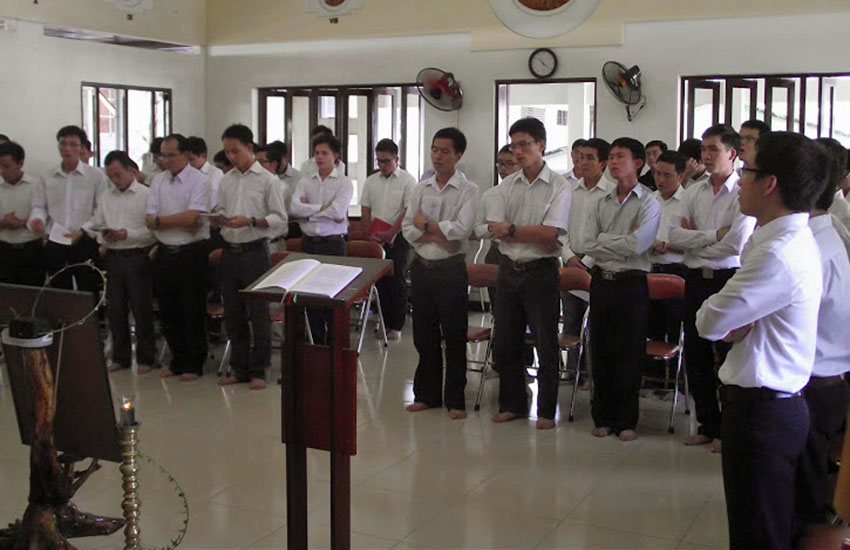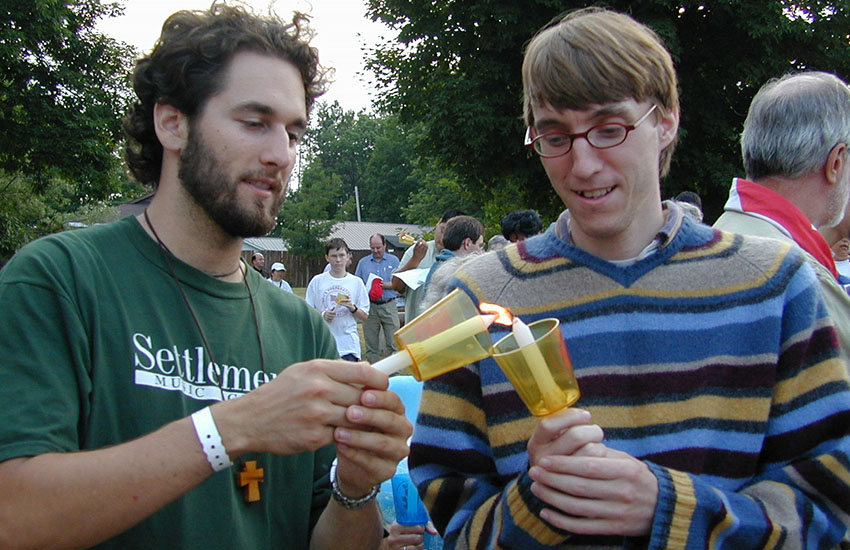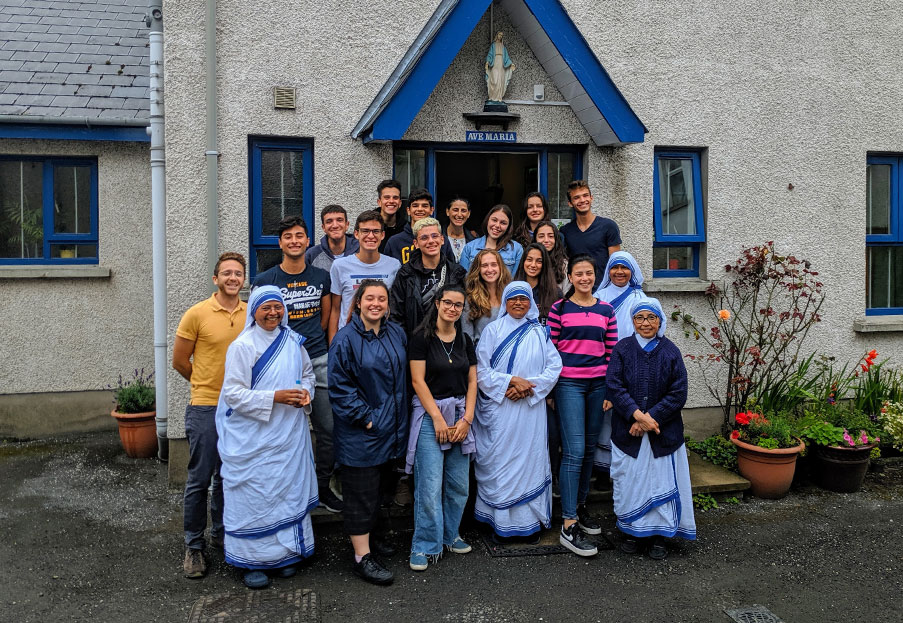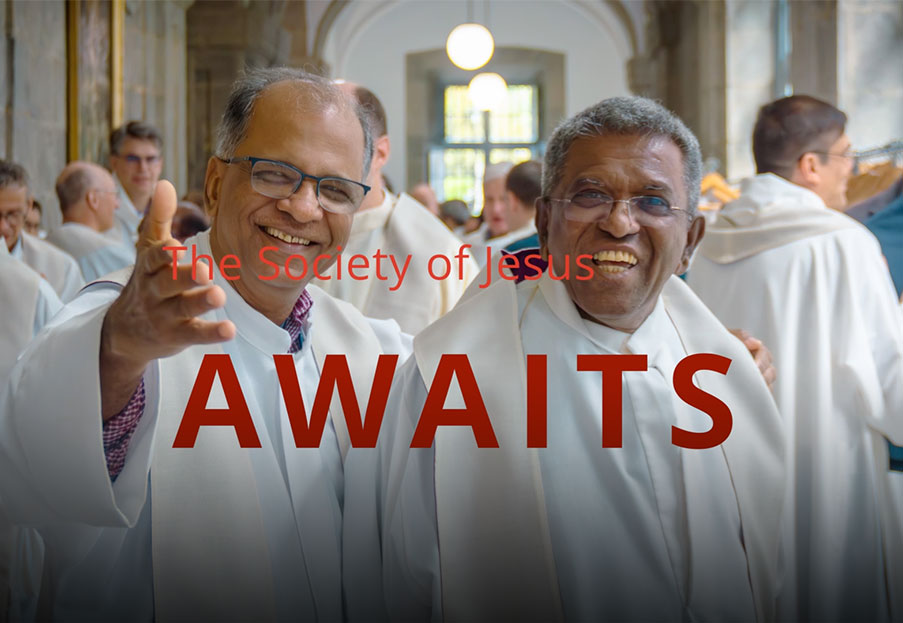Vocation promotion, a multifaceted challenge
Fr. Mark Ravizza is Father General’s Assistant for Formation. He was among the most involved participants during the recent meeting of the Consiglio Allargato (the Enlarged Council of the General). Prior to the meeting, he organized focus groups with vocation promotors from all the Conferences of the Society throughout the world to get a current picture of what is being done in terms of vocational promotion.
Furthermore, the aim was to find out who are the young men who are showing interest in the Society of Jesus nowadays. What characteristics or commitments of the Jesuits attract their attention and meet their deepest desires? What discourages men from joining the Society that comes from negative testimonies? What causes Jesuits in formation to leave?
The survey also sought to know how vocations are promoted, how much is being done, and perhaps even more, what appear to be the best ways of promoting vocations in diverse cultural and socio-religious contexts?

Mark Ravizza gave a broad picture of the responses from the focus groups, material that was intended to feed the prayer of the participants in the Enlarged Council. This was followed by a serious dialogue on proposals that could be made to the whole Society on the theme of Vocation Promotion. At the end of the sharing, which took the form of a spiritual conversation, Father Ravizza shared with us what he had learned.
To begin, I’d like to note that the Consiglio Allargato this past week had two unique features. First, in contrast to our usual Council meetings during which we discuss a range of different issues, this Consiglio focused on a single topic, “The Jesuit Vocation today: Its meaning, its living and its promotion.” Choosing to dedicate an entire week to one topic clearly reflects the priority Fr. General wants to give to Jesuit Vocation. It was very beneficial to have this time to share our own vocation stories, to discuss the unique importance of the brother’s vocation in the Society, to analyze the features of our Jesuit identity that attract a new generation, and to discern ways that we might better promote vocations.
A second unique feature of this Consiglio was that for the first time ever, we had two women and two Jesuits who are not regular members of the Extended Council as full participants in our prayer, spiritual conversations, and plenary deliberations. The presence of these “guests” - Sr. Merle Salazar, FDNSC, Mrs. Nicoletta Purpura, Br. James Edema (AOR), and Fr. Shekhar Manickam (GUJ) - greatly enriched our conversations and showed us the benefits of expanding the diversity of voices that make up our discerning body. I certainly hope this practice will continue in the future.

With respect to vocation promotion, the week yielded far more that can be summarized in a brief article so let me just touch on two important themes that emerged:
Accompaniment and Youth Ministry. In every Conference, people highlighted the crucial need for personal accompaniment to help potential candidates better discern their vocations. Such accompaniment has become all the more critical because in many parts of the world men are coming to us from unchurched backgrounds and with little knowledge of the Society. In such a context, vocation promotion often becomes a time of formation, and there is an increasing need to imagine creative ways to integrate Vocation Promotion with youth ministry so that we can better share the Spiritual Exercises with the young and assist them to discern if God is calling them to religious life.
Governance and Rekindling a Culture of Vocation Promotion. A second theme that emerged strongly in all the Conferences was the need to cultivate a “culture of vocation promotion.” Such a culture begins by missioning properly trained men to work full-time in vocation promotion without rapid turnover. Across the globe, we have learned how effective it can be to work in teams, strategically using social media, and building up networks of support by collaborating with local superiors, directors of works, lay partners, and religious sisters. A culture of vocation promotion also invites each Jesuit to take personal responsibility for attracting men through praying each day for vocations, welcoming men into our communities, and giving witness to lives that inspire and attract the young. Certainly, fostering such a culture goes far beyond the work of vocation promoters alone. It depends on well-managed structural change driven by Major Superiors, and we spent time imagining how Fr. General could help to animate such change by working directly with Conferences using the video-conferencing technology that has become so commonplace across these days of pandemic.
In the end, of course, all
vocations depend on God graciously calling a new generation to become
companions of Jesus. Recognizing our dependence on this grace, a key fruit of
the week was the desire to commit ourselves once again to daily prayer for
vocations, and that is something I hope each of you, readers, will feel invited
to as well.







